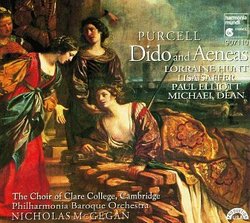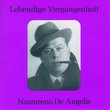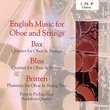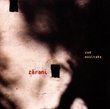| All Artists: Henry Purcell, Nicholas McGegan, Lorraine Hunt Lieberson, Lisa Saffer, Philharmonia Baroque Orchestra, Cambridge The Choir of Clare College, Donna Deam, Michael Dean, Christine Brandes, Paul Elliott Title: Purcell: Dido and Aeneas; Music for "The Gordian Knot Unty'd" Members Wishing: 0 Total Copies: 0 Label: Harmonia Mundi Fr. Original Release Date: 1/1/1994 Re-Release Date: 9/27/1994 Album Type: Import Genres: Pop, Classical Styles: Vocal Pop, Opera & Classical Vocal, Forms & Genres, Theatrical, Incidental & Program Music, Historical Periods, Baroque (c.1600-1750) Number of Discs: 1 SwapaCD Credits: 1 UPC: 093046711023 |
Search - Henry Purcell, Nicholas McGegan, Lorraine Hunt Lieberson :: Purcell: Dido and Aeneas; Music for "The Gordian Knot Unty'd"
 | Henry Purcell, Nicholas McGegan, Lorraine Hunt Lieberson Purcell: Dido and Aeneas; Music for "The Gordian Knot Unty'd" Genres: Pop, Classical
|
Larger Image |
CD DetailsSimilar CDs |
CD ReviewsExcitement, Entertainment, Theatrics Leslie Richford | Selsingen, Lower Saxony | 04/30/2006 (5 out of 5 stars) "Henry Purcell (1659 ? 1695): Dido and Aeneas. Opera in 3 Acts. Music for ?The Gordian Knot Unty?d?. Performed by: Lorraine Hunt[-Lieberson] (Dido); Lisa Saffer (Belinda); Donna Deam (Second Woman); Ellen Rabiner (Sorceress); Christine Brandes (First Witch and Spirit); Ruth Rainero (Second Witch); Michael Dean (Aeneas); Paul Elliott (A Sailor); The Choir of Clare College, Cambridge; The Philharmonia Baroque Orchestra, conducted by Nicholas McGegan. Recorded in September, 1993, at Skywalker Sound, Nicasio, California. Harmonia Mundi HMU 907110. Total time: 60?09?. The number of recordings of Purcell?s ever-popular mini-opera ?Dido and Aeneas? has increased greatly over the past years, and almost all of the best-known period-performance conductors have tried their hand at it: Ivor Bolton, William Christie (twice), Nikolaus Harnoncourt, Richard Hickox, Christopher Hogwood, Rene Jacobs, Nicholas McGegan, Andrew Parrott (twice), Trevor Pinnock ? That alone gives evidence of how fascinating and attractive this music must be and puts a big question mark behind the comments of the reviewer who thinks that Purcell was not a good composer. In fact, of course, Purcell was a genius, combining his English heritage in a brilliant way with the latest influences from Italy (although he probably only knew these second-hand). Of course this work, written in the 1680?s, cannot be compared with music (and certainly not with opera!) from a later period; it has to be taken for its own value as it stands. Personally, I own three CD versions of the piece, of which Nicholas McGegan?s is, in my opinion, the most attractive. But let me take things in chronological order. The oldest ?Dido and Aeneas? in my collection is Andrew Parrott?s first recording, made in 1981 for the Chandos label and still kept available in the Chaconne series (CHAN 0521). This disk kept me happy for many years, its disadvantages being mainly peripheral: the analogue sound is not as good as many later digital recordings, and the thin booklet only offers a summary of the plot but not a libretto. Emma Kirkby as Dido is at the zenith of her career and sounds wonderful, although it has been suggested, quite plausibly, that her voice is a little too innocent and girlish for this role. She is supported here by the cr?me de la cr?me of the British early music scene: David Thomas as Aeneas has seldom filled out a role so well; Judith Nelson as Belinda has here not yet lost the freshness of her small but very pure soprano voice; Jantina Noorman as the sorceress can send chills down anybody?s spine; and the minor characters (Emily van Evera and Rachel Bevan as the witches, Judith Rees as the Second Woman and Tessa Bonner as the spirit) are all, to my ears at any rate, quite delightful, with the witches deliberately singing in a thoroughly ugly and hateful manner; only Rachel Bevan?s second role as the sailor comes over as a trifle weak. After many years, I decided to obtain a newer version of the piece and purchased, within months of each other, the version by Nicholas McGegan (1993) and that by Emmanuelle Haim (Virgin Classics, 2003). Both are absolutely tremendous in their way, albeit quite different in their approach. French conductress Emmanuelle Haim is, as far as I can tell, strictly historical in her instrumentation, using recorders, a viola da gamba and an organ as well as the usual strings, winds and harpsichords. On the vocal side, she has gathered an ensemble of accomplished opera singers around her who are, to my mind at any rate, not early music specialists. Susan Graham gives a full-bodied Dido, absolutely first-class from a singer?s point of view, but with plenty of vibrato, something that has been the topic of debate in period performance circles for many years. Ian Bostridge, a tenor, was an unusual choice for Aeneas; his singing is, as ever, totally convincing, although I nonetheless found myself wishing that he had been a bass-baritone. Felicity Palmer, contralto, as the Sorceress produces some incredibly throaty tones that take a little getting used to, but in the end I think she was a great choice for this role. Camilla Tilling, Cecile de Boever, David Daniels and Paul Agnew are all great singers and fill their parts out with just the right amount of feeling and sensibility. Only the two witches were, I felt, too ?normal? in comparison with other performances and did not really make my hair stand on end. Nicholas McGegan?s offering has the edge as far as excitement goes: his tempi are, as usual, very fast, and it seems that on occasion he sacrifices ?authenticity?, whatever that may be in this context, to entertainment. And entertaining his performance really is! Intending to compare the first act of his version with Haim?s, I found myself going on to listen to the whole opera again for the sheer pleasure of these wonderfully fresh voices and the lively orchestral playing ? and that despite the fact that McGegan uses a comparatively large choir and a comparatively small orchestra, making do without the recorders, the viola da gamba and the organ. He also has the Second Woman sing some of Belinda?s text, which personally I did not find disturbing because Lisa Saffer and Donna Deam appear to form a magnificent team, their voices complementing each other quite ideally. The star of the performance is, of course, Lorraine Hunt[-Lieberson], who is here able to bring in the whole expressivity of her range and whose ?early music? style I find quite incomparable. Michael Dean?s Aeneas I also found to be eminently enjoyable: not as polished as Ian Bostridge, perhaps, but from the point of view of timbre ?just so?. Bravo! The witches and the sailor distort their voices in a highly entertaining manner: this is not just ?opera?, not just ?early music?, this is really ?theater?! And that is where I reach the conclusion of this long review. I think Mme. Haim?s CD is certainly the most polished of the three I have and would be most likely to satisfy lovers of opera and beautiful singing. But Nicholas McGegan?s has the edge as far as excitement, entertainment and theatrics is concerned. The recorded sound is equally good on both CDs. Choose your preference! " Dido, Aeneas and a bonus 11/11/2000 (4 out of 5 stars) "Performing Purcell's 'Dido and Aeneas' is a task that has made conductors very curious - the many and varied recordings and performances of it prove it. The circumstances in which the work was originally performed is somewhat vague, the manner of performing Purcell generally is not very clear, the scores found are varied (no manuscript was ever found) and there are two missing parts - the prologue and probably a ballet or choir section at the end of the second act. I have heard several recordings of the work, however, I feel McGegan has done it in a way which sounds just right, as if this is how ot should have been done. First of all, the choice of basing the performance on a couple of the scores found seems to be appropriate, and in my opinion the right mix was done here. Lorraine Hunt makes a brilliant Dido, she has a very dramatic power mixed with a pure voice and a great sense of the time. Lisa Saffer is the most wonderfull Belinda I have ever heard, singing softly and sweetly and expressing the character very strongly. Michael Dean sounds as flat as Aeneas should be, in my opinion, but one can clearly sense he is understanding the role and singing that way intentionally. Donna Deam is doing a wonderfull job as the second woman - a role which is quite small but has great importance, especially in her air in the second act, which in my opinion is the greatest one in the opera, except, of course, for the lament. I was a bit bothered with Ellen Rabiner, as the Sorceress - she was using too much vibrato which, sometimes, made the pitch unclear, and was not very convincing dramatically. The choir of Clare College are absolutely brilliant. The orchestra plays beautifully and McGegan has got some brilliant passages on the harpsichord. The continuo section, generally, has the right balance between being very dominant and being gentle - in a very smart dramatic sense. In the lament they greatly emphasize the chromatic ground descending bass in a way which promotes the feeling of tension and grief. I was bothered, sometimes, with the choice of making the witches and the witches choir distort their voices, the music has it all inside and I believe there is no need of adding any unnatural distortion to it, although I can understand the reasons for doing it. I thought that the leaflet could use some more explanations, I especially wished McGegan himself would draw a few words explaining his aims and his choices. The sailor's air and chorus, for example, were sung in a very dominant folksy accent, and although I found it fresh and appropriate I would be more content if I could know the reasons for such a choice. The whole performance is a bit heavier than other HIP performances I have heard of this brilliant opera, however, I feel it fits perfectly with the drama and promotes it. The addition of music for 'The Gordian Knot Unty'd' is lovely. The orchestra plays it beautifully and it feels like a bonus!" Flows with Lyrical Emotion Coney | Brooklyn, New York USA | 10/10/2002 (5 out of 5 stars) "Unlike the other versions I've heard, this Harmonia Mundi recording flows brilliantly with the emotion of the story. The orchestration and singing is moved by the events and feelings of the story. It doesn't move slowly as if weighted down by later operatic traditions, but quickly with a light rocking feeling; the listener being rhythmically cradled in the arms of the performers. I was moved to tears by this presentation, and while I found other versions to be competent to excellent in their own way,nothing even approached the emotional and musical oneness of this Dido and Aeneas, which immerses the listener in its mythological grandness. Lorraine Hunt and Lisa Saffer are brilliant."
|

 Track Listings (36) - Disc #1
Track Listings (36) - Disc #1


